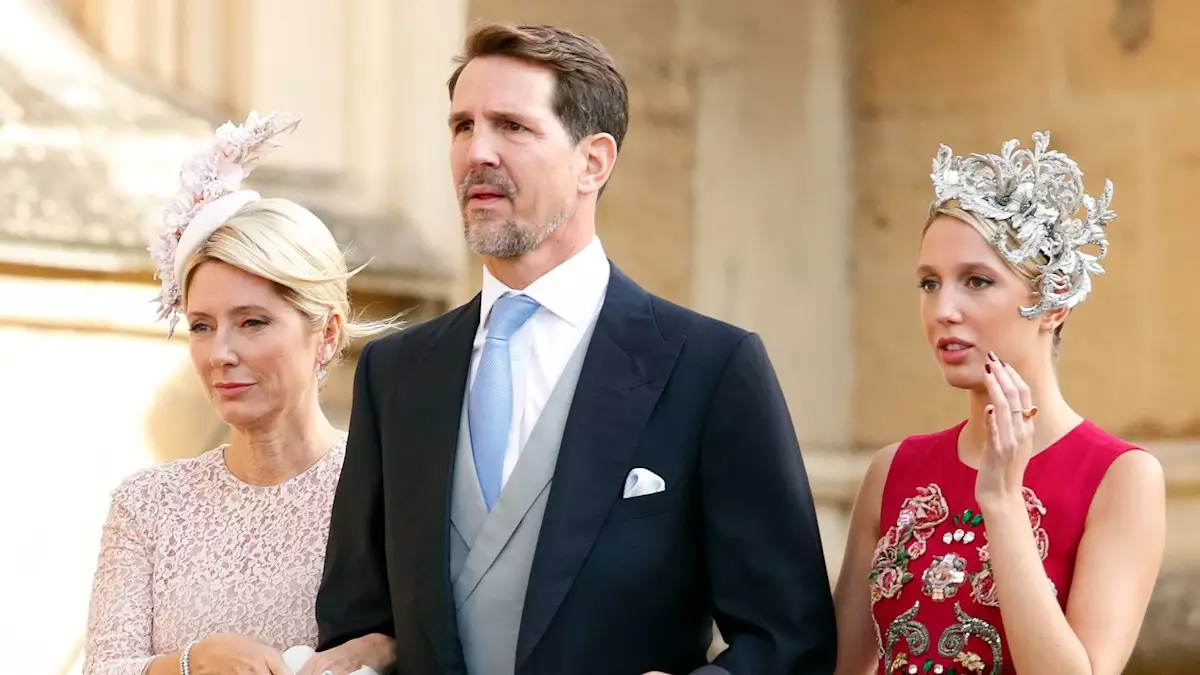In a significant development reflecting a shift in public and political sentiment, members of the Greek royal family are seeking to reclaim their citizenship in Greece after decades of exclusion. This move, embraced by the descendants of the last monarch, King Constantine II, signals an unprecedented acceptance of the geopolitical realities established half a century ago when Greece transitioned from a monarchy to a republic. The complexities surrounding their citizenship are rooted in historical grievances, particularly the tumultuous events that led to the monarchy’s abolition in the 1970s.
In 1994, King Constantine II and his family were stripped of their Greek nationality following a prolonged legal dispute over royal properties and their insistence on maintaining a claim to the former throne. This ignited a fierce debate within Greece, as sentiments were still tinged with memory of the military regime that ousted the monarchy and the challenges that ensued. Historically, the monarchy’s dissolution was confirmed by a referendum in 1974, a period grounded in the aspirations of a nation striving for democratically accountable governance.
Recently, members of the Greek royal family officially acknowledged the status of the nation as a republic, a declarative step that is notably an acceptance of contemporary Greek identity and governance. This shift is encapsulated by their choice to alter their surnames to ‘de Grece’, aligning themselves more closely with their nation rather than a bygone era of royal privilege. Interestingly, this move seems not just about reclaiming lost citizenship but also about fostering connections with a modern, democratic Greece that bears little resemblance to the monarchical past.
It encompasses a broader effort by the family to reset their narrative in a country that has dramatically changed since their exile. The family’s intentions are reflected in the statements from officials like Athanasios Balerpas of the Interior Ministry, who suggested this initiative serves as a pivotal resolution to a long-standing issue, allowing Greece to embrace its past while looking forward to a unified future as a republic.
While the declaration has garnered attention, it does not, however, ensure immediate restoration of citizenship. The process requires formal recognition through publication in the official government gazette, a procedural step that will enable the family’s applications for Greek identity cards and passports. This bureaucratic nuance highlights the lingering complexities involved in reconciling historical grievances with modern statehood and identity politics.
Family members, notably King Constantine’s five children—Crown Prince Pavlos, Princess Alexia, Prince Nikolaos, Princess Theodora, and Prince Philippos—are at the forefront of this effort. Speculation suggests that younger generations, including grandchildren, may also be included in this burgeoning movement. Each member’s reintegration into Greek society poses challenges, particularly in reconciling their legacy with contemporary Greece’s values.
The past year has been particularly eventful for the Greek royal family, with significant personal milestones punctuating their public return. Notably, Princess Theodora’s marriage to Matthew Kumar highlighted a softer side of the royal narrative, showcasing the family’s adaptability and emotional bonds with the Greek populace. This wedding, celebrated amidst a backdrop of social distance due to prior pandemic restrictions and mourning the late king, signifies both a continuation of familial traditions and a hopeful outlook for the future.
As Theodora and Matthew drove through cheers from well-wishers following their union, it depicted a moment of reconnection between the royal family and the Greek people. Crown Prince Pavlos’s gestures of gratitude towards the crowd as they departed symbolized a bridge being built between their past and their present, emphasizing an ongoing dialogue about their place within Greek society.
As deliberations regarding their citizenship move forward, the Greek royal family’s journey reflects broader themes of identity, reconciliation, and the ever-evolving relationship between history and modernity. Their actions suggest a desire not just for political recognition but for a deeper acceptance within a society that has navigated immense change since their departure. Through this complex interplay of personal and national history, the potential reinstatement of royal citizenship may not only serve personal aspirations but also enrich the longstanding narrative of a nation evolving from its past while embracing its history.

